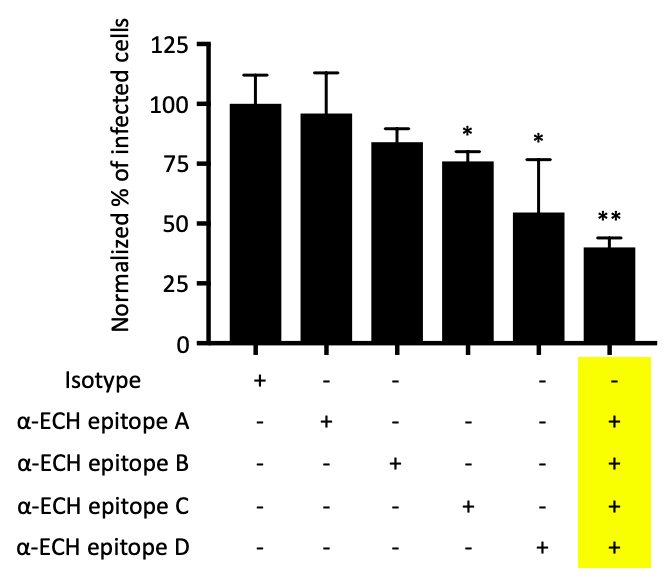Vaccine for Tick-Borne Disease
Novel Canine Chiimeritope Vaccine for Ehrlichiosis
Chimeric Protein for Diagnostic and Therapeutic use for Monocytic Ehrlichiosis
Canine monocytic ehrlichiosis (CME) is a potentially fatal tick-borne disease of canines prevalent in the southern regions of North America. Caused by Ehrlichia bacteria, if left untreated CME can cause depression, lethargy, weight loss, anorexia, pyrexia, lymphadenomegaly, splenomegaly, bleeding, and death. Researchers at Virginia Commonwealth University (VCU) have developed a novel chiimeritope that mimics various surface proteins essential for Ehrlichia infection that can be utilized to vaccinate canines against infection.
The technology
The novel chimeric protein developed at VCU utilizes segments of 3 separate proteins that play central roles in the processes of ehrlichial adherence and invasion of mammalian cells. The combination of 3 protein segments significantly reduces the production cost of this vaccine while also providing broad protective efficacy. Further, the selected chiimeritope invokes an immune response capable of preventing host cell invasion and replication of Ehrlichia. The unique chimeric protein has already been shown to elicit an immune response that results in antibody production in animal hosts. The resulting antibody has also been demonstrated to be effective in blocking the ability of Ehrlichia to enter mammalian cells, strongly reducing Ehrlichia infection, which can be seen in the figure below. 
Figure 1. Evaluation of antibody cocktails that target various Ehrlichia protein segments. Combinations of antibodies significantly reduced the number of infected cells compared to the number of cells infected when only treated with a singular antibody.
